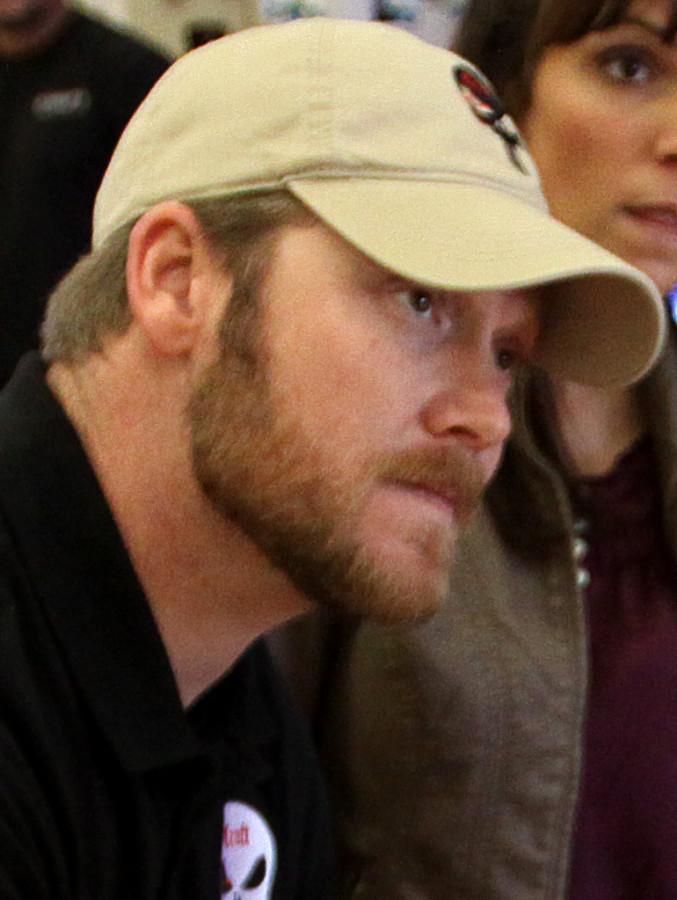Who is the American Sniper?
As the credits rolled and patriotic music began playing in the theater, I was shell-shocked. My initial reaction to the movie American Sniper was one of pure admiration, for both the movie itself and for Chris Kyle’s story. However, it never once occurred to me that there would such intense backlash against the film.
When scrolling through Facebook, I stumbled upon a post stating, “The real hero was the man who put a bullet in Chris Kyle’s head.” I was stunned at his disrespect for someone whom I saw as a hero. After reading several articles and watching numerous videos, including interviews with Kyle himself, I have arrived at the following conclusion: arguments for why Kyle was a hero and those for why he was not both have merit.
What cannot be ignored are the incorrect assumptions made in the movie. Turning an autobiography into a dramatic film is very challenging, thus changes to the original story will probably be made. Clint Eastwood, the director of the movie, chose to set it at the Second Battle of Fallujah, where the US evacuated women and children from an inhabited city and conducted a door-to-door clearing process. There is a lot of controversy surrounding this military campaign. It is well known that over 3,000 Iraqi civilians were killed during the siege. That being said, there is no concrete evidence that Kyle killed innocent civilians, as he claimed many times that only ever killed men who would have otherwise killed US soldiers. However, without any evidence, this is speculation.
The movie depicts the act of Kyle killing his targets as bravely “eradicating evil.” However, the underlying assumption that Iraqi resistance to US military personnel is “evil” is problematic. How can we call people “evil” for defending their country from invaders?
This recurring theme deals with morality during war and actions that soldiers must inevitably take. Is the person defending his country any more “evil” than the person convinced he is protecting his by participating in an invasion? Granted, there were truly evil men who fought on both sides of the conflict, but it is fallacious to say there is a clear dichotomy between good and evil. However, Kyle did not have the luxury of determining who his enemy was. While in retrospect it was wrong to siege the city of Fallujah, since many deaths could have been avoided, it is wrong to paint Kyle as a murderer, just as it is to glorify him for his kills.
Kyle is often celebrated as an American hero for the wrong reasons. Eastwood, in the movie adaptation, puts a large emphasis on the violence committed by Kyle and puts a patriotic spin on it, which is the wrong reason to celebrate Kyle’s legacy. As Kyle stated in an interview with Time magazine, he wrote the book American Sniper in order “to get it out there about the sacrifices that the military makes and the sacrifices that their families also have to go through.”
Kyle’s character is also a point of controversy, as throughout his book and recent interviews he seems to show no regret for the lives he took in war. He stated many times that he would gladly “ask his god” for each life he took and believes firmly that each murder was justified. Kyle writes, “It was my duty to shoot the enemy, and I don’t regret it. My regrets are for the people I couldn’t save: Marines, soldiers, buddies. I’m not naive, and I don’t romanticize war. The worst moments of my life have come as a SEAL. But I can stand before God with a clear conscience about doing my job.”
Many people would look at this statement and see Kyle as an honorable man, while others would find him close-minded and unapologetic. Eastwood has Bradley Cooper, the actor who played Kyle, show more regret and trauma than Kyle showed in real life. Kyle even goes so far as to say in his book, “But I wondered, how would I feel about killing someone? Now I know. It’s no big deal.” Is that the statement of a sadistic man? Or a painfully realistic man that tells the difficult truths that others won’t?
Ross Caputi, a soldier who served alongside Kyle in Fallujah, wrote an excellent article stating that, “Chris is neither a hero nor a war criminal.” But it seems the public wants to see a soldier show regret for killing another human being, and so Kyle drives people mad. Kyle also makes it explicitly clear that he still supports the actions of the US in Iraq, which angers people due to his lack of empathy and reflection. Interestingly enough, other Marines have come forward and spoken out against the US invasion of Iraq.
There is also a huge amount of frustration among readers towards the lies present in his book. Kyle told three blatant lies which are all extremely disturbing, which raises questions about his character, as well as his integrity as a story-teller. Many writers question that if Kyle would lie about one thing, what would stop him from lying about another? How can we believe that he never killed an innocent man?
It is quite possible that these delusions are evidence of a mental illness occurring from spending over 1,000 days in battle. Of the Iraq-war veterans, 20% have been diagnosed with Post-traumatic Stress Disorder, while 20% have suffered a traumatic brain injury. Both of these conditions can result in sporadic and unpredictable behavior as well as possible psychotic delusions.
Is it possible that the war turned Kyle into a stone-cold killer? Or are Kyle’s unrepentant remarks and outright lies a result of an acute mental health affliction? Do the arguments justifying Kyle’s actions stand alone? It is up each of us to weigh each side and evaluate whether we chalk Kyle up as a hero, villain, or somewhere in-between.
Sources: BBC.com, thefederalist.com, people.com, stopwar.org.uk, goodreads.com

Nicholas Householder, who goes by “Nick,” is embarking on his first year at The Talon where he will be working as a Features writer. He can sometimes...









